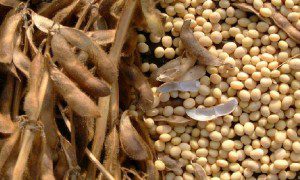
12 Jan EARTH MATTERS: FUTURE OF GMOS
At lunch, A friend asked “What’s going to happen with GMOs?” I didn’t have an answer, but I did come up with some issues to watch. I’ll go into some of these in more detail in an upcoming blog, but here are the topics I think will be worth considering in the coming year:
• In the US, GMOs have been regulated by existing bodies and existing regulations under the Coordinated Framework for the Regulation of Biotechnology since 1986. Is this likely to change?
Probably not. No administration has shown any desire to change this, and every administration since the 90s has had people who previously or subsequently worked in the biotechnology industry in one or more important positions. However, with enough pressure from the states and perhaps from farmers who are growing less enthusiastic about biotechnology, I remain optimistic that someday, this may change. Labeling could also help drive change in this area.
• What is the chance of labeling GMOs?
California’s Proposition 37 failed this last election, but not by a large margin. Proponents were heavily outspent by industry interests, which proved impossible to overcome. A recently conducted poll, however, still shows that over 67% of Californians support labeling. It is possible that activists will try again in California. Washington state activists have collected more than enough signatures to get labeling on the ballot there. Several other states may have ballot issues as well, and a widespread movement for labeling on the state level in a number of different states concurrently could prove more difficult for opponents to fight. National level labeling is unlikely – or potentially problematic, if the labeling is so weak as to render it meaningless, a concern raised by Ronnie Cummins in a recent article. (Go to http://www.alternet.org/food/are-wal-mart-and-big-food-lobbying-fda-gmo-labeling-law.)
• Are GMOs useful, for farmers or otherwise?
The potential commercialization of 2,4 D tolerant crops and the recent FDA FONSI (Finding of No Significant Impact) for GM salmon put a major damper on the argument that GMOs are going to “help feed the world,” thrown out time and again by proponents of biotechnology. 2,4 D is a highly toxic herbicide – there are no environmental benefits to creating crops that are tolerant to it. (Glyphosate was arguably a less damaging herbicide and allowed farmers to use less herbicide and to practice no-till agriculture, but there are a number of problems with these claims as well.) Salmon is a high-value product with a poor fish-to-feed ratio – that is, it takes from two to seven pounds of forage fish to create one pound of farmed salmon – and salmon aquaculture has a number of negative environmental consequences, even before you consider using GM fish. Finally, the early perceived benefits of the existing GM crops are fading – more and more weeds and pests are becoming resistant, and yields are not higher than those of conventionally bred crops for a number of different GMOs. Some farmers are already starting to turn away from GMOs, but a major difficulty is finding conventional seed for the “big four” crops of soybeans, corn, rapeseed, and cotton. It will be interesting to watch whether farmers start demanding alternatives. I think that could create a real shift in the debate.



Sorry, the comment form is closed at this time.